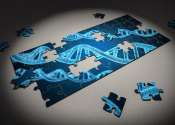New study reveals gut segments organized by function
As food enters the intestine, it embarks on windy, lengthy journey. For most of the route, its surroundings don't appear to change much. But new research from Rockefeller's Daniel Mucida shows that the food-processing canal ...
May 24, 2019
0
98









